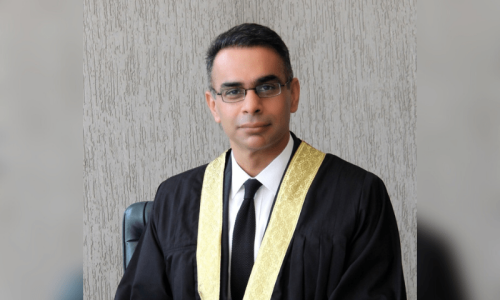UNITED NATIONS: Foreign Minister Shah Mehmood Qureshi has alerted the OIC Contact Group on Kashmir that India has intensified its belligerent rhetoric against Pakistan, including threats of military aggression.
The OIC Contact Group met on the sidelines of the UN General Assembly in New York on Sunday to discuss the worsening human rights situation in India-occupied Jammu and Kashmir.
Saudi Arabia, Niger and Azerbaijan attended the meeting. Head of the OIC Observer Mission to the UN Ambassador Agshin Mehdiyev represented the OIC Secretary General.
On Monday, the UN General Assembly also held the inaugural meeting of its high-level debate on world affairs. The United Nations had arranged hundreds of events this year to commemorate its 75th anniversary but most of these events are being held virtually because of the Covid-19 pandemic.
Contact Group met to discuss worsening rights situation in held Kashmir
At the OIC meeting, members of the Contact Group reviewed recent developments in Jammu and Kashmir, including the grave human rights and humanitarian situation in the occupied territory and tensions along the LoC.
Pakistan’s Ambassador Munir Akram read out the foreign minister’s special message in the meeting, stating that the RSS-BJP regime in India was implementing the so-called “final solution” in the occupied lands.
India, he said, was engaged in systematically engineering a demographic change through its new domicile rules.
“The issuance of 1.6 million domicile certificates since March is meant to change the demography of IOJK from a Muslim majority into a Hindu majority territory,” he added.
The foreign minister pointed out that in another attempt to obliterate the Muslim identity of occupied Jammu and Kashmir, India was also changing the official status of the Urdu language through a new legislation.
Rejecting the Indian claim of “normalcy” in the occupied territory, Mr Qureshi highlighted a joint communication by 18 special mandate holders of the Human Rights Council issued last month. The statement noted that the human rights situation there was in a “free fall” and hundreds of young Kashmiris were killed extra-judicially in “fake encounters” and “cordon and search” operations.
It noted that the Indian security forces continued to enjoy complete impunity under black laws like Armed Forces Special Powers Act (APSPA) and the Public Safety Act (PSA). The foreign minister informed the group that in 2020 alone, India had committed over 2,200 ceasefire violations.
“There is a tangible threat of further escalation as India might conduct another false flag operation to justify renewed aggression against Pakistan, posing a serious threat to regional peace and security,” he said. Mr Qureshi said it was imperative for India to immediately lift its inhumane military siege and rescind all illegal actions taken since Aug 5. He also urged New Delhi to remove restrictions on communications, movement and peaceful assembly; release incarcerated political leaders and free arbitrarily detained Kashmiris.
The foreign minister said that India must reverse new domicile rules; remove draconian security laws and prosecute military and civilian personnel involved in massive human rights violations.
“Allow unhindered access to fact finding missions and the international media to investigate human rights violations in the occupied lands,” he said. Reaffirming OIC’s principled position on the issue, all members of the Contact Group expressed deep concern at the continued human rights violations in occupied Jammu and Kashmir. They recalled OIC’s ministerial communiques of Sept 25, 2019, and June 22 this year, and fully endorsed the foreign minister’s recommendations, adding that they were essential for immediate de-escalation.
The Contact Group also asked the UN Secretary General, the UN Security Council and the UN Human Rights Council to call on India to halt human rights violations, rescind the unilateral and illegal measures taken on and after Aug 5, 2019, and to implement the Security Council resolutions calling for a plebiscite to enable the people of India-occupied Jammu and Kashmir to exercise their right to self-determination.
Published in Dawn, September 22nd, 2020
















































